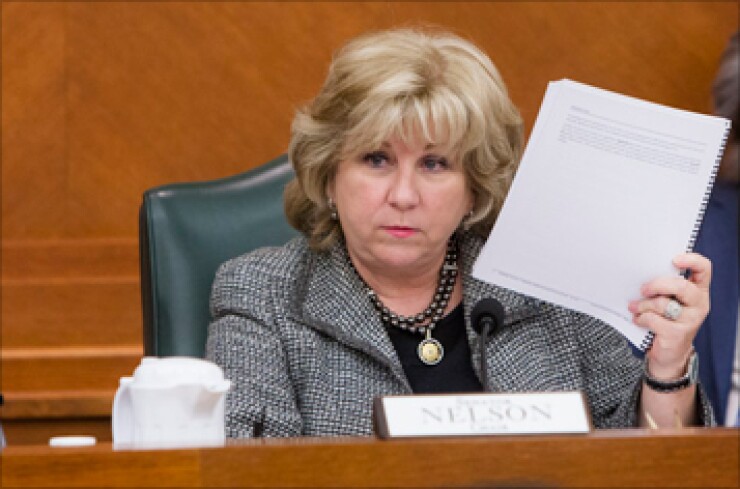
DALLAS – The Texas Senate unanimously approved a $217.7 million budget that shifts some of the load of school finance to local districts, cuts funding for higher education and uses an accounting gimmick to delay transportation funding.
The budget for fiscal years 2018-19 that cleared the Senate Tuesday would spend $106.3 billion in general funds, which is $1.4 billion more than state Comptroller Glenn Hegar said was available but 0.5% below spending for the current biennium. The additional revenue comes from shifting a share of the school funding burden to local districts and delaying a voter-approved payment for transportation funding.
Through those means, the budget avoids tapping the $10 billion rainy day fund. The House version of the budget would tap the fund to keep spending level with growth.
"Because of declining oil prices and other factors, we do not have the amount of revenue that we've seen in years before," said state Sen. Jane Nelson, R-Flower Mound, who chairs the Senate Finance Committee.
"This is a lean, but not mean budget," said Sen. Carlos Uresti, D-San Antonio, and a member of the Finance Committee.
Hegar said that the amount of revenue available to the 2017 Legislature would be higher than in 2015 had lawmakers not dedicated a portion of sales tax revenue to transportation projects two years ago. That measure was approved by voters as a constitutional amendment.
The Senate budget would delay to the 2020 budget year a $2.5 billion payment to state highways that was scheduled for 2019, basically moving the payment ahead by one month.
"The Finance Committee left no stone unturned looking for savings, examining our budget drivers, and looking for ways to make smarter use of our resources," Nelson said. "Our workgroups labored around the clock, searching for opportunities to achieve savings with the goal of freeing up additional resources to fund our priorities."
House Speaker Joe Straus called the transportation funding maneuver "cooking the books" and urged use the of the rainy day fund instead. The rainy day fund, made up mostly of oil and gas revenues, is expected to grow to nearly $12 billion by the end of 2019.
The Senate budget would reduce funding to higher education by a range of 6% to 10% but leaves the K-12 education funding formula intact. The plan would decrease the state's share of the funding formula by $1.4 billion by relying on rising property values in local school districts.
When the House approves its version of the budget, both houses will assign members to a committee to reconcile the differences. The budget must be approved by the end of May.





